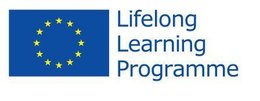About IntlUni
The framework and aims of IntlUni
Background
In the development towards the European Higher Education Area (EHEA), many Higher Education Institutions (HEIs) are facing challenges formerly unknown to them: Students and lecturers alike form much more heterogeneous groups than ever before, speaking a wide spectrum of languages and representing a wide spectrum of cultural backgrounds in what may be termed the Multilingual and Multicultural Learning Space (M&MLS).
Aims of IntlUni
The aims of the IntlUni Erasmus Academic Network are
- to identify the quality criteria that should characterise teaching and learning in the Multilingual and Multicultural Learning Space; and
- to develop recommendations for how Higher Education Institutions may implement and ensure the sustainability of quality teaching and learning in the Multilingual and Multicultural Learning Space.
Objectives
The concrete objectives of this project are therefore:
- To identify different types of settings for the International HEI (e.g. teaching through the national language or another language to national or international students with lecturers teaching through their Level 1, Level 2 or Level 3) with a view to establishing a typology of such settings;
- To identify the linguistic, cultural and pedagogical/didactic challenges in the various types of HEIs in the typology;
- To identify possible ways to meet these challenges within different Higher Education (HE) teaching and learning cultures;
- To identify examples of successful practice in different scenarios;
- To identify a set of quality criteria for teaching and learning in the M&MLS;
- To develop a set of recommendations for the implementation processes that meet these quality criteria at institutional and national levels as well as recommendations for possible European cooperation in this area.
Final report (public part)
The IntlUni Final Report was approved by the EACEA in April 2016 with a score of 90/100. The evaluation was summed up as follows: ”An excellent network which has worked effectively to produce very good material and carried out valuable activities”. You can read the report here.
Basic facts
-
Has grown out of a Special Interest Group under the European Language Council (CEL – ELC).
-
An ERASMUS Academic Network – 1 October 2012 – 30 September 2015: 526646-LLP-1-2012-1-DK-ERASMUS-ENW.
-
38 partners in 27 countries.
IntlUni launch
Karen M. Lauridsen, Associate professor at Aarhus University and IntlUni Coordinator introduces the IntlUni Erasmus Academic Network 2012-2015

